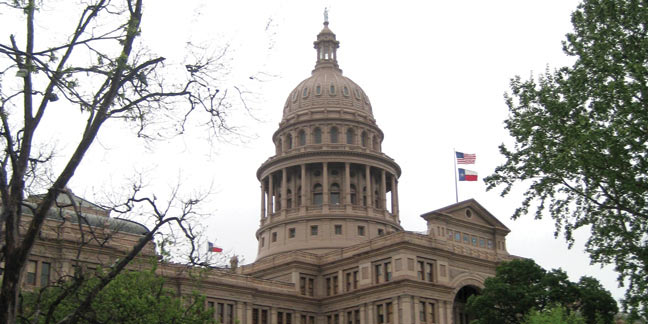TSEU members and our allies have been working hard to get our concerns addressed by State Representatives and Senators in the Capitol. The last day of the Legislative session is on June 1st, so decisions made over the next few weeks will have a lasting impact on state employees and retirees, as well as every community that we serve.
Get involved and encourage your coworkers, family and friends to participate too! From Pay Raise Post Cards to phone calls to legislators, there is always a way to make our voice heard.
State Budget and State Services
In both the House and the Senate, budget writers are heeding Gov. Abbott’s call for corporate tax cuts. Budget estimates anticipate Texas having about $8 billion in available revenue, and another $11 billion in the Rainy Day Fund. Roughly $4.8 billion is being set aside for corporate tax cuts, while funding for state services and higher education remains stagnant.
State Employee Pay
To date, only the House of Representatives has passed a budget that includes a pay raise, however this raise is almost entirely wiped out by an increase in the employee pension contribution (see “Pension” below). The 2.5% across-the-board raise was passed by the House as part of a pension bill, House Bill 9, that increases the employee ERS pension contribution to 9.5% (up from 7.2% in FY 2016). A targeted 10% raise for Parole and Juvenile Correctional officers is included in the House version of the budget. Funding for a university employee pay raise is not included in either the House or Senate budget.
Healthcare
Funding for the various state employee and retiree healthcare plans has been included in the initial draft budgets from the House and Senate. However, a very harmful piece of legislation that would allow employees to switch to costly Health Savings Accounts has passed out of the House Pensions Committee. House Bill 966 would allow employees to leave our Group Benefits Plan (GBP), which would drive up the costs of our healthcare benefits. TSEU members will continue to work to defeat this bill.
Pension / Retirement Benefits
The stabilization of the ERS pension fund will be achieved if House Bill 9 passes. The bill increases the state and employee contribution to the ERS, with the employee’s share of the increase offset by a pay raise. The bill would prevent any cuts or changes to the plan, and would help ensure that ERS is able to pay for future obligations. The TRS pension plan is expected to be funded, with no additional changes. Both the ERS and the TRS can only increase benefits for retirees when the funds are actuarially sound, meaning able to pay for 31 years of benefits with current and projected funds. A pension increase for ERS retirees is not likely until the $7.5 billion deficit is eliminated. For the TRS, the fund is currently 80% funded, which is considered healthy, but the fund must be 100% funded before another cost-of-living increase can be provided for TRS retirees. The Senate pension plan has not been released.
Tuition Re-regulation
Numerous bills have been filled to curtail sky rocketing tuition rates at public universities. Most of these bills would prevent tuition from exceeding the inflation rate. Although tuition increases mostly made up for cuts in state funding, only small increases in university funding are included in the initial budget proposals.
